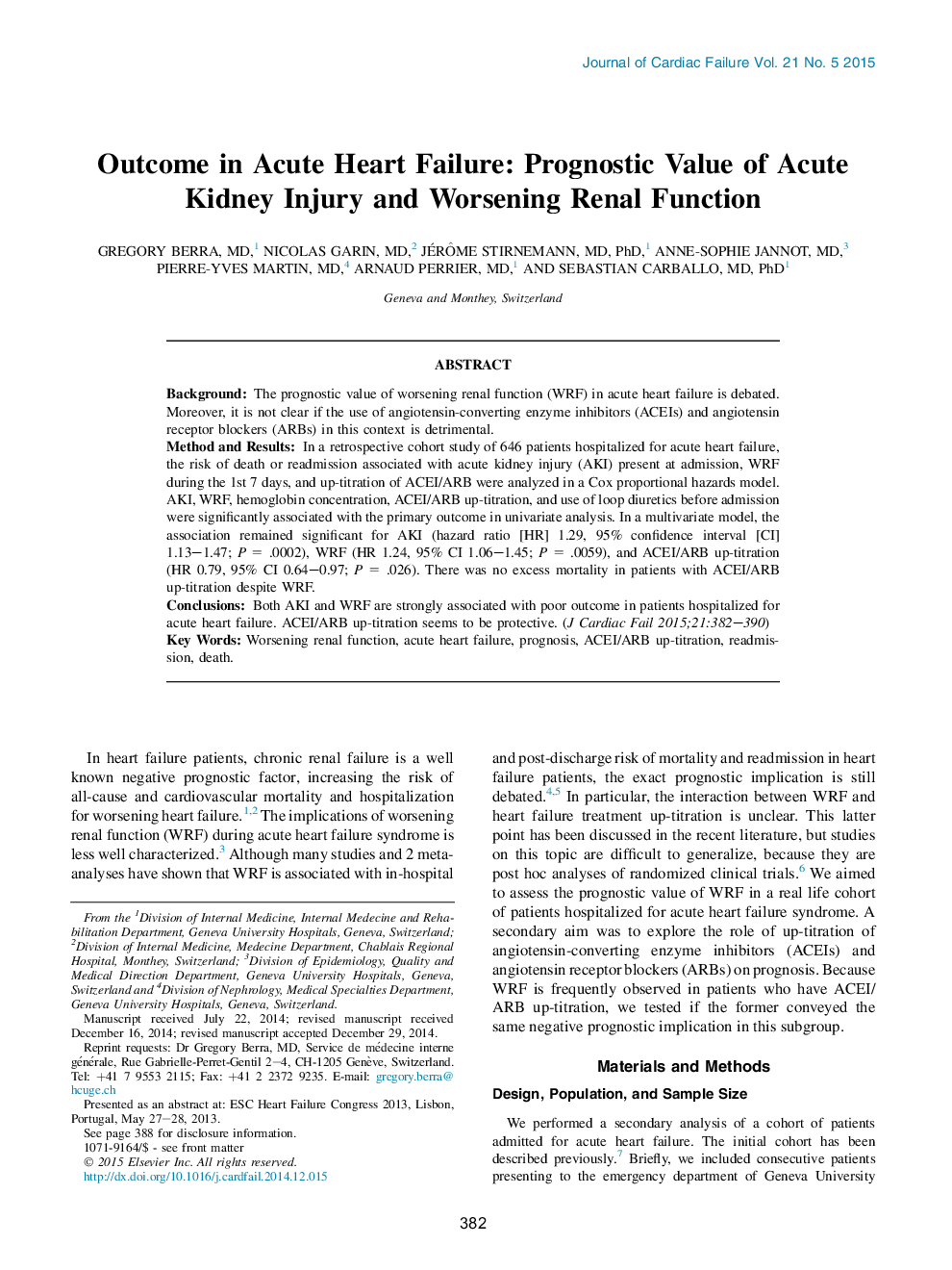| Article ID | Journal | Published Year | Pages | File Type |
|---|---|---|---|---|
| 2958991 | Journal of Cardiac Failure | 2015 | 9 Pages |
•Both acute kidney injury at admission and worsening renal function (WRF) during the 1st 7 days of hospital stay are strongly associated with a poor outcome in patients hospitalized for acute heart failure.•ACE inhibitor (ACEI) or angiotensin receptor blocker (ARB) up-titration during hospital stay seems to lower the risk of death and readmission risk.•We found no excess mortality in patients who developed WRF and in whom there was ACEI/ARB up-titration.
BackgroundThe prognostic value of worsening renal function (WRF) in acute heart failure is debated. Moreover, it is not clear if the use of angiotensin-converting enzyme inhibitors (ACEIs) and angiotensin receptor blockers (ARBs) in this context is detrimental.Method and ResultsIn a retrospective cohort study of 646 patients hospitalized for acute heart failure, the risk of death or readmission associated with acute kidney injury (AKI) present at admission, WRF during the 1st 7 days, and up-titration of ACEI/ARB were analyzed in a Cox proportional hazards model. AKI, WRF, hemoglobin concentration, ACEI/ARB up-titration, and use of loop diuretics before admission were significantly associated with the primary outcome in univariate analysis. In a multivariate model, the association remained significant for AKI (hazard ratio [HR] 1.29, 95% confidence interval [CI] 1.13–1.47; P = .0002), WRF (HR 1.24, 95% CI 1.06–1.45; P = .0059), and ACEI/ARB up-titration (HR 0.79, 95% CI 0.64–0.97; P = .026). There was no excess mortality in patients with ACEI/ARB up-titration despite WRF.ConclusionsBoth AKI and WRF are strongly associated with poor outcome in patients hospitalized for acute heart failure. ACEI/ARB up-titration seems to be protective.
